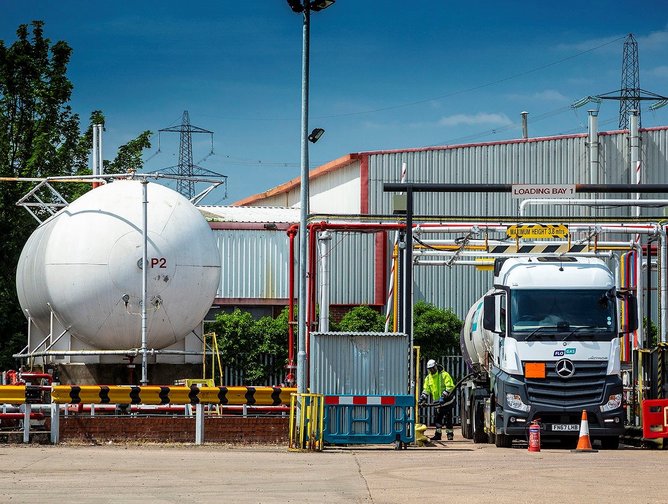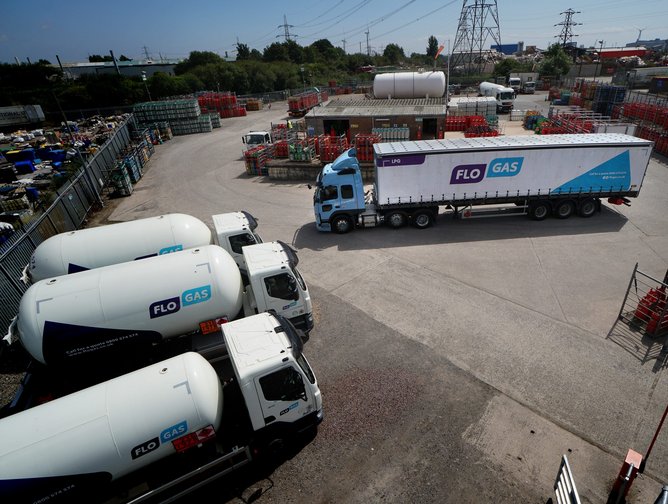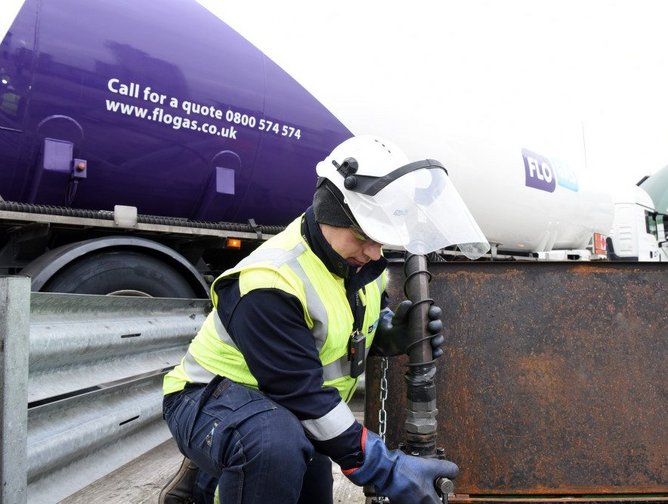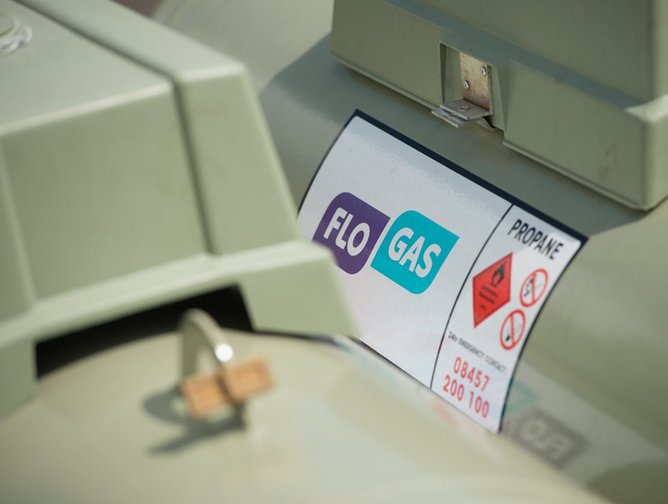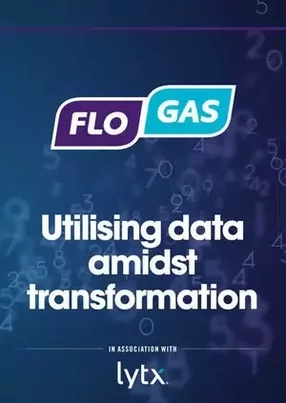Exploring Flogas’ digital transformation and the importance of procurement
As a leading energy provider in the UK, Flogas boasts an extensive and diverse range of products and services such as liquefied petroleum gas (LPG) supply for homes, businesses and vehicles as well as liquefied natural gas (LNG). Considered a market leader in propane enrichment for biomethane, Flogas provides its customers with solutions for an array of situations from heating and cooking to fueling manufacturing processes. For Tim Eaton, Head of Logistics and Supply Chain, what really differentiates Flogas from rivals is its ability to consistently add value to the services it offers. “We pride ourselves on not compromising when it comes to our service across the company,” says Eaton. “It’s important that you add value to our services; whether that be by how we interact with customers, how swiftly we respond to customer demand or how resilient that service level is. Everything that we focus on is making sure that our service level is reliable, resilient, and constantly responding to our customer base.”
Since initially speaking to us a year ago, Flogas has begun to fully embrace digitisation in the LPG market. Eaton discusses the hurdles his firm has overcome during the past 12 months. “A year ago, we were looking at a new end-to-end system that was going to replace a number of legacy systems to enable the business to offer a more retail service,” explains Eaton. “We've gone down a different route of trying to get the most out of every existing performance area that we can. We’ve begun to tighten up processes, retrain people and reposition them within different focus areas. We've looked at the individual systems, taken our own computing systems and looked at everything that it can do for us. Our priority is doing more with the data we have and we’ve redesigned the backend database around what data comes into the business.”
With technology having an ever-increasing impact on all companies’ digital transformation journeys, Eaton points to the importance of leveraging Flogas’ extensive data correctly. “We have a lot of data and possess vast amounts of information about our exact demand portfolio. We have access to lots of information that can really shape not just how we satisfy demand but also how we’re able to target new business. We're at a point now that a customer order can be raised automatically by us based on their consumption profile to enable the customer to be kept within product. That process is now almost completely digital from the order generation through to invoice.”
Having joined Flogas in January 2016, Eaton has helped oversee and shape his company’s ongoing technology transformation. “When I first joined the company, I inherited a number of discrete systems that all did their own jobs. We had an ERP system in place that captured orders and then we exported those orders to a scheduling system. We printed those routes out manually for drivers to deliver and then we entered in what had and hadn’t delivered which allowed us to invoice people through the ERP,” he explains. “Now, we have an order capture that is largely automated which allows us to manage the orders on behalf of our customers within our ERP. They go straight into our scheduling package and then are exported onto an on-truck computing system. When we deliver the gas, it's sent straight through with an electronic proof of delivery with an invoice to our customer. If it isn't delivered, it tells the customer that we've unfortunately been unable to deliver that, and sends it straight back into the pot for rescheduling. If you go back three years, you could be looking at a relatively long period of time from scheduling the delivery to knowing whether it's been delivered. Now, it's almost instantaneous.”
Operating with procurement firmly at the forefront of Flogas’ decision-making process, Eaton understands the importance of continually overseeing the supply chain to ensure his company’s suppliers are managed correctly. “Procurement has always been a vital part of the business,” he affirms. “We have operations spread around the country that control the flow of over 300,000 tonnes of product every year. There is a long list of suppliers that make sure that the supply chain continues to flow. We’re continuously monitoring how we manage our suppliers and we conduct a regular review of our top 20 led by our central procurement team. What we don't want is people that will sell us a product and walk away. We want people that are going to be offering ways to improve our business, and open for us asking them to improve how they work with our business. That's absolutely critical to how we achieve success with any of our strategic suppliers.”
Eaton affirms the importance of forming and maintaining a successful partnership. “What I’m looking for in any major partners that we have is someone to invest in their product independently. From being partners with them, we get the benefit of their expertise in a number of marketplaces. We need someone that understands a partnership is a two-way street and really listens to what we want.” With this in mind, Flogas has formed alliances with Lytx and AIUT in a bid to drive mutual success. “Lytx helps with data management and provides a camera solution to our vehicles. The solution manages the success of our delivery operation and is activated through harsh braking or acceleration to trigger a camera image of what the driver was doing, and what was going on in the road. This can help avoid accidents,” says Eaton. “We have also worked with our telematics system provider, AIUT, for a number of years now. They're very important because they provide us with all the Big Data, in terms of consumption data on how much customers are using and when. With AIUT’s help, we match that to what the customer uses the gas for and we're leveraging that data to obtain a more accurate demand forecast.”
By operating with a proactive approach that continues to adapt and change despite the attainment of success, Flogas has demonstrated an eagerness to consistently move with the latest trends and avoid standing still. “I think it’s always important to be aware of what could potentially come around the corner,” says Eaton. “Ask yourself, what might disrupt the business? I believe that if you're not looking to continuously improve what you do, someone else will come in and do it better.” However, Eaton affirms the biggest challenge is convincing employees to embrace change. “Everything can change tomorrow, but as long as we've always got the long-term future in mind, people will understand that change is necessary. If we continue to do what we’re currently doing two years from now, we won't be in the position we’re currently in.”
With the future in mind, Eaton has clear ambitions for how his firm can remain sustainable and successful over the next few years. “We've invested around $4.4mn on new vehicles over the last three years to modernise our fleet which enables our footprint to become friendlier environmentally. We’ve also just invested in some natural gas-powered vehicles that will be running on bio energy,” says Eaton. “In two years’ time, we need to have completed the transformation and have a very robust analytic system that is evaluating data in terms of customer demand and is telling us what to do in advance.”
